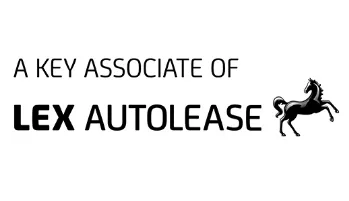What is an Electric Vehicle?
Electric vehicles (EVs) are rapidly gaining popularity in the UK due to their environmental benefits and the government's commitment to phasing out petrol and diesel cars by 2030. With over 300,000 registered EVs as of 2021 and a growing network of public charging points, the UK is making strides towards a more sustainable future of transportation. Many UK cities have also implemented low-emission zones, which encourage the use of EVs and other low-emission vehicles. The range of EVs is improving with advancements in battery technology, and the government offers grants for eligible EVs and home charging points to make EV ownership more accessible. Overall, the growth of the EV market in the UK is an exciting development, as it will help to reduce emissions and improve air quality for a more sustainable future.
Interesting Facts about Electric Vehicles in the United Kingdom
- The government has set a goal to phase out sales of new petrol and diesel cars by 2030, with hybrid cars to follow by 2035
- There are a network of over 25,000 public charging points, and the government has pledged to invest £1.3 billion in EV infrastructure by 2025
- The most popular EV in the UK is the Tesla Model 3, with over 27,000 units sold as of 2021
- London has the highest number of EV charging points in the UK, with over 5,000 available to the public
- The average driving range of a fully charged EV in the UK is around 120-150 miles, although some models have ranges of over 300 miles
- The government offers a grant of up to £2,500 for eligible EVs, as well as a grant of up to £350 for home charging points
- Many cities have implemented low emission zones, which restrict the use of high-emission vehicles in certain areas
- The UK is home to several EV manufacturers, including Nissan, which produces the Leaf, and Jaguar Land Rover, which produces the I-PACE
- Electric vehicles are exempt from the London Congestion Charge, which can save drivers up to £15 per day
The History of Electric Vehicles
Electric vehicles (EVs) have a long and interesting history in the UK, dating back to the early 19th century. The first electric car was built by Thomas Parker in 1884, and by the end of the century, electric cars were becoming more common in the UK. However, the popularity of electric cars declined in the early 20th century as petrol and diesel powered cars became more affordable and accessible.
In the 1970s, the oil crisis and concerns about air pollution led to renewed interest in electric cars, and several UK companies began producing electric vehicles. In the 1990s, the UK government introduced tax incentives for electric cars, increasing sales. However, the incentives were later withdrawn, and electric cars again declined in popularity.
The Future of Electric Vehicles
The future of electric vehicles (EVs) in the UK looks promising, as the government aims to phase out the sale of new petrol and diesel cars by 2030. This move is part of the UK's ambitious goal to achieve net-zero greenhouse gas emissions by 2050. With a growing network of public charging points, the UK is making significant progress towards a sustainable future of transportation.
The market is also expanding rapidly, with many major car manufacturers now offering models in the UK. The range of EVs is increasing, and advancements in battery technology are making vehicles more efficient and affordable. As a result, EVs are becoming a more practical option for many drivers, and the market is expected to continue to grow in the coming years.
To support the growth of the market, the UK government is investing in EV infrastructure, including public charging points and battery research. The government is also offering grants for EV purchases and home charging points to make ownership more accessible. With continued investment and innovation, the future of electric vehicles in the UK looks bright, offering a sustainable and cleaner future of transportation for generations to come.
Benefits of Leasing a Vehicle in the United Kingdom
There are numerous benefits of owning an electric vehicle in the UK. Here are five key benefits:
- Environmental
EVs produce zero emissions while driving, which means they have a much smaller carbon footprint than traditional petrol or diesel cars. Driving an EV helps reduce air pollution, which is particularly beneficial in urban areas where air quality can be poor - Cost savings
Although the upfront cost of an EV may be higher than a traditional car, it can save you money in the long run. Electricity is cheaper than petrol or diesel, and EVs require less maintenance than traditional cars - Convenience
EVs can be charged at home, meaning you never have to visit a petrol station again. With a growing network of public charging points, you can also charge your vehicle while running errands or shopping - Low noise
EVs are virtually silent while driving, which means they produce less noise pollution. This can be particularly beneficial in residential areas, where noise pollution can be a problem - Low emissions zones
Many UK cities have implemented low emissions zones, which restrict the use of high-polluting vehicles. EVs are exempt from these restrictions, meaning you can drive in these areas without incurring extra charges or penalties.
We are working with Transport for London and their ULEZ Scrappage Scheme - you can view this on our TFL ULEZ Page
We have selected our Top 5 Electric Vehicle Offers:
- TESLA MODEL 3 SALOON RWD 4dr Auto
- CITROEN E-C4 ELECTRIC HATCHBACK 100kW Sense 50kWh 5dr Auto
- MG MOTOR UK MG4 HATCHBACK 150kW Trophy EV Long Range 64kWh 5dr Auto
- PEUGEOT E-208 ELECTRIC HATCHBACK 100kW Allure Premium 50kWh 5dr Auto
- RENAULT MEGANE E-TECH EV60 160kW Techno 60kWh 5dr Auto











